第101章 CHAPTER XVI(3)
Maxence was then forced, unfortunate fellow, to think of another move, while Philippe, whose eyes were darting gleams that were sharper than the flash of their blades, parried every attack with the coolness of a fencing-master wearing his plastron in an armory.
Between two men of the calibre of these combatants, there occurs a phenomenon very like that which takes place among the lower classes, during the terrible tussle called "the savante," which is fought with the feet, as the name implies. Victory depends on a false movement, on some error of the calculation, rapid as lightning, which must be made and followed almost instinctively. During a period of time as short to the spectators as it seems long to the combatants, the contest lies in observation, so keen as to absorb the powers of mind and body, and yet concealed by preparatory feints whose slowness and apparent prudence seem to show that the antagonists are not intending to fight. This moment, which is followed by a rapid and decisive struggle, is terrible to a connoisseur. At a bad parry from Max the colonel sent the sabre spinning from his hand.
"Pick it up," he said, pausing; "I am not the man to kill a disarmed enemy."
There was something atrocious in the grandeur of these words; they seemed to show such consciousness of superiority that the onlookers took them for a shrewd calculation. In fact, when Max replaced himself in position, he had lost his coolness, and was once more confronted with his adversary's raised guard which defended the colonel's whole person while it menaced his. He resolved to redeem his shameful defeat by a bold stroke. He no longer guarded himself, but took his sabre in both hands and rushed furiously on his antagonist, resolved to kill him, if he had to lose his own life. Philippe received a sabre-cut which slashed open his forehead and a part of his face, but he cleft Max's head obliquely by the terrible sweep of a "moulinet," made to break the force of the annihilating stroke Max aimed at him. These two savage blows ended the combat, at the ninth minute. Fario came down to gloat over the sight of his enemy in the convulsions of death; for the muscles of a man of Maxence Gilet's vigor quiver horribly. Philippe was carried back to his uncle's house.
Thus perished a man destined to do great deeds had he lived his life amid environments which were suited to him; a man treated by Nature as a favorite child, for she gave him courage, self-possession, and the political sagacity of a Cesar Borgia. But education had not bestowed upon him that nobility of conduct and ideas without which nothing great is possible in any walk of life. He was not regretted, because of the perfidy with which his adversary, who was a worse man than he, had contrived to bring him into disrepute. His death put an end to the exploits of the Order of Idleness, to the great satisfaction of the town of Issoudun. Philippe therefore had nothing to fear in consequence of the duel, which seemed almost the result of divine vengeance: its circumstances were related throughout that whole region of country, with unanimous praise for the bravery of the two combatants.
"But they had better both have been killed," remarked Monsieur Mouilleron; "it would have been a good riddance for the Government."
The situation of Flore Brazier would have been very embarrassing were it not for the condition into which she was thrown by Max's death. A brain-fever set in, combined with a dangerous inflammation resulting from her escapade to Vatan. If she had had her usual health, she might have fled the house where, in the room above her, Max's room, and in Max's bed, lay and suffered Max's murderer. She hovered between life and death for three months, attended by Monsieur Goddet, who was also attending Philippe.
As soon as Philippe was able to hold a pen, he wrote the following letters:--
To Monsieur Desroches:
I have already killed the most venomous of the two reptiles; not however without getting my own head split open by a sabre; but the rascal struck with a dying hand. The other viper is here, and I must come to an understanding with her, for my uncle clings to her like the apple of his eye. I have been half afraid the girl, who is devilishly handsome, might run away, and then my uncle would have followed her; but an illness which seized her suddenly has kept her in bed. If God desired to protect me, he would call her soul to himself, now, while she is repenting of her sins.
Meantime, on my side I have, thanks to that old trump, Hochon, the doctor of Issoudun, one named Goddet, a worthy soul who conceives that the property of uncles ought to go to nephews rather than to sluts.
Monsieur Hochon has some influence on a certain papa Fichet, who is rich, and whose daughter Goddet wants as a wife for his son: so the thousand francs they have promised him if he mends up my pate is not the chief cause of his devotion. Moreover, this Goddet, who was formerly head-surgeon to the 3rd regiment of the line, has been privately advised by my staunch friends, Mignonnet and Carpentier; so he is now playing the hypocrite with his other patient. He says to Mademoiselle Brazier, as he feels her pulse, "You see, my child, that there's a God after all. You have been the cause of a great misfortune, and you must now repair it. The finger of God is in all this [it is inconceivable what they don't say the finger of God is in!]. Religion is religion: submit, resign yourself, and that will quiet you better than my drugs.
Above all, resolve to stay here and take care of your master: forget and forgive,--that's Christianity."